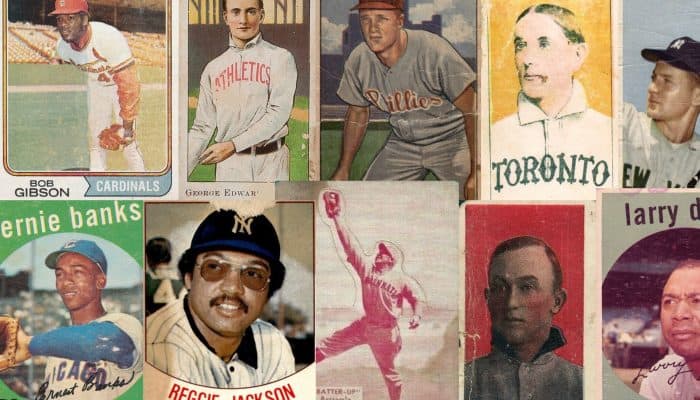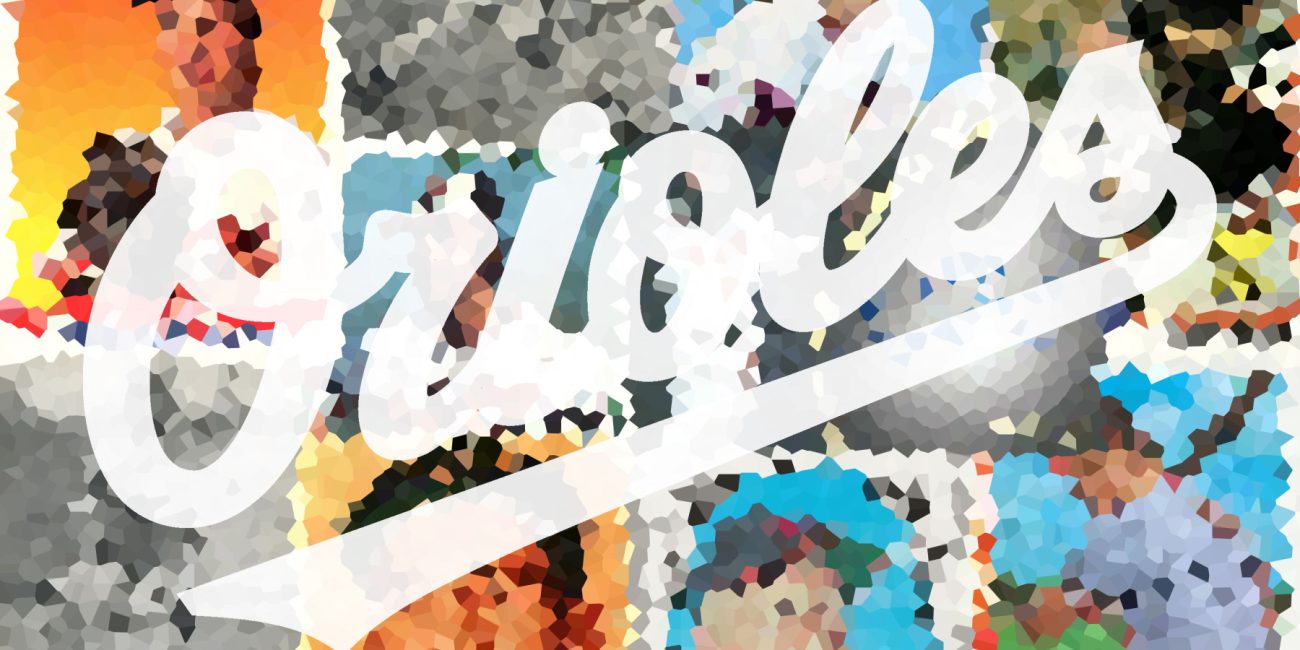
The Baltimore Orioles, with roots dating back to the late 19th century, boast a rich and complex history. It is marked by moments of triumph, periods of struggle, and unwavering fan loyalty. Collectors flock to Baltimore Orioles cards because they represent their franchises success, and the heroes who made it possible.
The franchise’s journey began in 1901 when the Milwaukee Brewers joined the newly-formed American League. The team relocated to St. Louis after only one season and was began using the Browns name. The team experienced moderate success in their early years. They reached the World Series in 1906 but ultimately falling to the Chicago White Sox. The following decades saw the Browns fluctuate between periods of competitiveness and struggle, never capturing another World Series appearance.
In 1954, the Browns moved to Baltimore and took up the name of an old minor league team – the Orioles. This marked the beginning of a long and enduring chapter for the franchise. The early years were challenging, with the Orioles often finishing near the bottom of the American League standings. However, the tide began to turn in the 1960s with the emergence of talented players and the guidance of influential manager Earl Weaver.
The 1966 season proved to be a turning point. Led by a dynamic offense and strong pitching, the Orioles captured their first World Series title, defeating the Los Angeles Dodgers in four games. This victory marked the start of a golden era for the franchise, with the Orioles returning to the World Series in 1969, 1970, and 1971, and winning their second championship in 1970.
The late 1970s and early 1980s saw continued success for the Orioles, with several division titles and another World Series win in 1983. Since then, the team has experienced periods of both competitiveness and rebuilding, reaching the playoffs on several occasions but falling short of another World Series appearance.
10. Mark Belanger
Player History
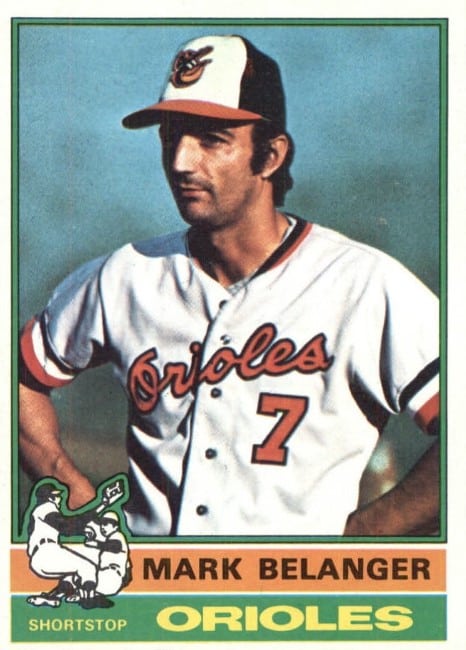
Mark Belanger, nicknamed “The Blade” for his defensive prowess, was a shortstop for the Baltimore Orioles for 17 seasons (1965-1981). He was primarily known for his exceptional fielding, consistently ranking among the league’s best defensive shortstops.
Belanger’s defensive accolades are numerous. He won a remarkable nine Gold Glove Awards, tying the record at the time for most by a shortstop. He also led the American League in fielding percentage four times and assists twice, showcasing his remarkable range and sure hands. Offensively, he was a consistent contributor, batting over .250 in nine seasons with the Orioles. While not known for power hitting, he displayed good on-base skills, reaching base over 30% of the time in several seasons.
Beyond the statistics, Belanger was a key part of the Orioles’ success during their dominant era. He was renowned for his smooth fielding, quick reflexes, and ability to make difficult plays look routine. His calm demeanor and leadership qualities were valuable assets to the team, and he was well-respected by his teammates and coaches. One notable event occurred in the 1970 World Series against the Cincinnati Reds. With the game tied in the ninth inning, Belanger made a game-saving play, snaring a line drive to secure the championship for the Orioles.
Mark Belanger was a vital cog in their championship teams and left a lasting legacy as one of the best defensive shortstops in baseball history. However, his impact also extended beyond the field. Belanger served as the Orioles’ union representative and advocated for player rights during a turbulent period in baseball labor relations. He later transitioned to a role with the MLBPA, using his experience to support and guide other players. His dedication to the game and his fellow players solidified his place as a respected figure in baseball history. The Curt Flood Award was posthumously awarded to Belanger in 2021, for his contributions to the MLBPA.
Best Orioles baseball card: 1976 Topps Mark Belanger #505
Mark Belanger’s best season – 6.5 WAR – and his only All-Star campaign was in 1976. Belanger is shown at shortstop, exactly where Orioles fans loved seeing him. Outside of gem-mint specimens, this Baltimore Orioles card is an affordable $4-$6 for mint condition copies.
9. Adam Jones
Player History
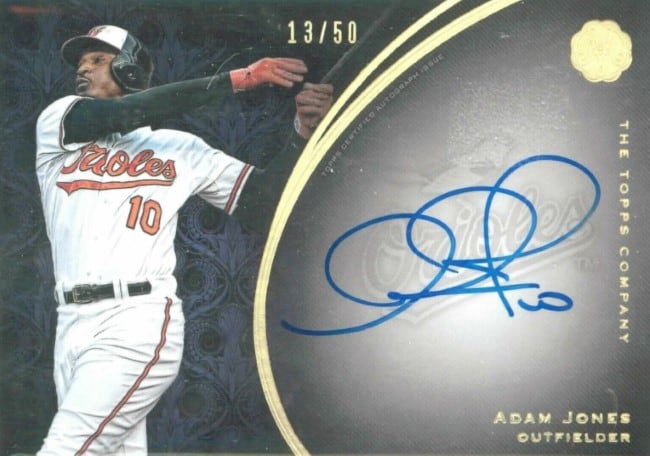
Adam Jones, affectionately nicknamed “A.J.” by fans, had an eleven-year stint with the team from 2008 to 2018. Primarily known for his power hitting and athleticism, Jones became a fan favorite. He was also a cornerstone of the Orioles’ offensive attack during some otherwise lean years for the team.
Jones’ offensive prowess is undeniable. He ranks fifth on the Orioles’ all-time home run list with 248 long balls. He also ranks fifth in RBIs with 803, showcasing his ability to drive in runs. Additionally, Jones was a four-time All-Star selection with the Orioles, receiving recognition for his elite talent among American League outfielders. His defensive contributions were noteworthy as well, earning him a Gold Glove Award in 2012.
Jones also brought a vibrant energy and passion to the field. He served as a mentor to younger players and fostered a positive team environment. One notable moment occurred in 2016, when Jones delivered an emotional speech in defense of his teammates following an incident of racial abuse from a fan. His stance against discrimination resonated deeply with fans and solidified his status as a role model.
Adam Jones’s combination of power, athleticism, and leadership cemented his place as one of the most impactful Orioles players ever.
Best Orioles baseball card: 2016 Topps The Mint Franchise Autograph Adam Jones #FA-AJ
Adam Jones has a slew of modern cards with autographs, patches, serial numbers and other various rarities. But this 2016 Topps The Mint Franchise card is a beautiful, on-card autograph that boldly shows Jones’s looping signature. This Baltimore Orioles card is a tough find but will typically run around $100-$200 in ungraded condition.
8. Boog Powell
Player History
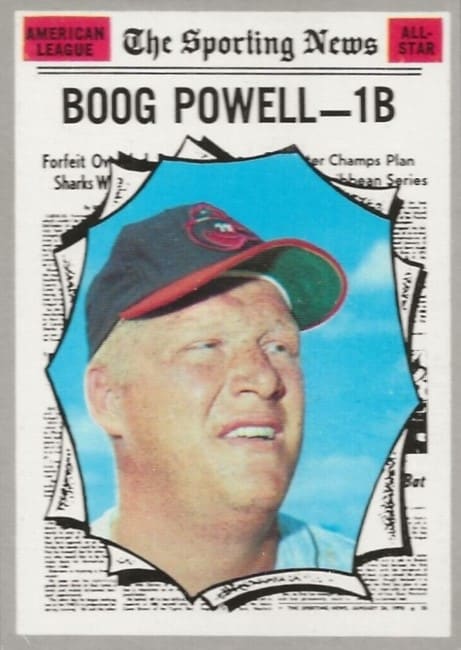
John Wesley “Boog” Powell was a charismatic and powerful Orioles first baseman for twelve seasons (1961-1972). He established himself as one of the most feared sluggers in baseball, renowned for his prodigious home runs.
Powell’s offensive prowess is undeniable. He ranks third on the Orioles’ all-time home run list with 339 homeruns. He also ranks fourth in RBIs with 1,132. Additionally, Powell was a four-time All-Star selection with the Orioles, receiving recognition for his elite talent among American League first basemen, and he won the American League Most Valuable Player Award in 1970.
Powell also brought a larger-than-life personality to the game. His infectious smile and jovial demeanor endeared him to fans. He was also known for his clutch hitting, often delivering key hits in pressure situations. One such instance occurred in Game 5 of the 1970 World Series against the Cincinnati Reds. With the score tied in the ninth inning, Powell hit a two-run single, driving in the winning runs and securing the championship for the Orioles.
Powell’s impact extended beyond the field. He became a beloved figure in the Baltimore community, actively participating in charitable events and fostering positive relationships with fans. He also opened “Boog’s BBQ” in the right field stands of Oriole Park at Camden Yards, serving up food to new generations of fans.
Boog Powell’s legacy as a power hitter and impactful community presence make him one of the most iconic players in franchise history.
Best Orioles baseball card: 1970 Topps Boog Powell #451
1970 was a very good year for Boog Powell: He not only won MVP, but his Orioles won the World Series. This card from the same year is a value buy at $5-$10 in ungraded condition.
7. Urban Shocker
Player History
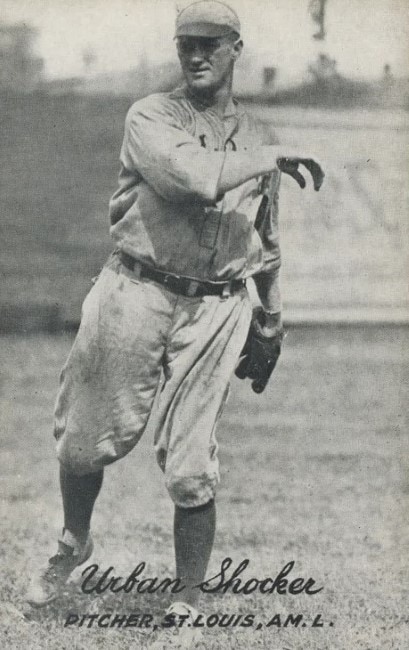
Urbain Jacques “Urban” Shocker was known for his mastery of the “spitball” and his fiery competitiveness. He pitched for the St. Louis Browns for eight seasons, including a one-year break to serve in the Army during World War I. In that time, Shocker established himself as one of the most dominant pitchers in the American League and a leader for the Browns.
Shocker’s dominance is evident in his statistical achievements. He won 126 games with the Browns, the most in franchise history at the time of his departure. He led the American League in wins twice, in 1920 and 1921, and in earned run average once, in 1921. Additionally, he recorded four seasons with at least 20 wins, solidifying his reputation as a reliable and consistent ace. Notably, he played a pivotal role in the Browns’ 1922 season. He led the team to their first-ever World Series appearance, where they ultimately fell to the New York Giants.
Beyond the statistics, Shocker was known for his unorthodox pitching style. He relied heavily on the “spitball,” a pitch where the ball is altered with moisture or saliva to deceive the batter. The pitch was outlawed in 1920 but Shocker was grandfathered in and continued to utilize the pitch effectively. His deceptive deliveries, coupled with his pinpoint control, frustrated opposing hitters and earned him the nickname “The Schemer.” A broken finger, suffered in 1913, also gave Shocker an edge by giving him a devastating breaking ball.
Shocker’s competitive spirit and unwavering determination were hallmarks of his playing style. He battled through various injuries throughout his career, including a broken jaw sustained in a collision at home plate. One notable story exemplifies his grit. In 1920, facing the powerhouse New York Yankees in a crucial game, Shocker pitched a complete-game shutout despite suffering from a fever. His tenacity was an important part of his game and his personality.
Urban Shocker remains a significant figure in the team’s history, remembered as one of their most accomplished and impactful pitchers.
Best Orioles baseball card: 1921 Exhibits W461-1 Urban Shocker
Since he was in and out of baseball after the heyday of tobacco cards like the T205 and T206, and before the early gum cards like 1933 Goudey, not a lot of Urban Shocker cards exist. This leaves us with few options, and they’re hard to find. Exhibits cards are the best of the bunch, and the 1921 set shows Shocker in a St. Louis uniform with a nice script of his name at the bottom. Most versions of this card are in poor condition, and if you can find one, expect to pay around $50.
6. Mike Mussina
Player History
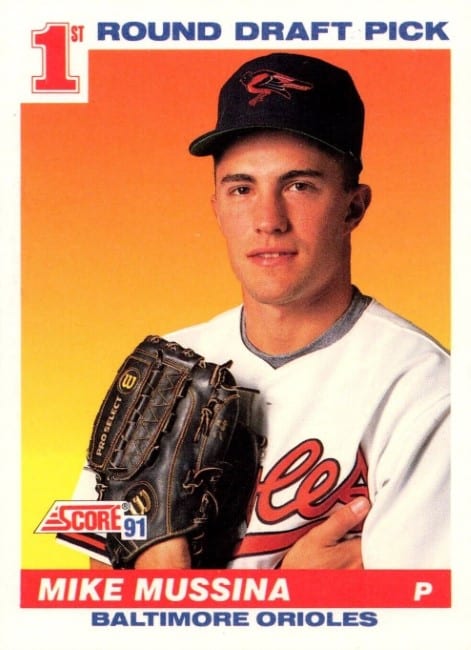
Mike Mussina, nicknamed “Moose,” dominated on the mound for the Baltimore Orioles for ten seasons, from 1991 to 2000. He established himself as one of the most consistent and dominant pitchers in baseball history. Specifically, Mussina earned a reputation for his pinpoint control, deceptive repertoire, and unwavering composure.
Mussina’s statistical achievements with the Orioles are nothing short of remarkable. He compiled a win-loss record of 147-80, boasting a stellar .648 winning percentage. This was the highest in franchise history at the time of his departure. Mussina led the AL in ERA twice, in 1996 and 1997, and struck out over 200 batters seven times. Additionally, Mussina was a seven-time All-Star selection with the Orioles. Notably, he played a key role in leading the Orioles to the American League Championship Series in both 1996 and 1997, showcasing his ability to perform under pressure in the postseason.
Beyond the statistics, Mussina was famous for his cerebral approach to the game. He meticulously studied hitters and relied on a diverse arsenal of pitches, including a sinker, cutter, and curveball, to induce weak contact. His calm demeanor and unwavering focus earned him the reputation of a stoic competitor, rarely displaying emotions on the mound. While not as outwardly expressive as some players, Mussina garnered respect from teammates, coaches, and fans alike for his dedication, professionalism, and quiet leadership.
Orioles fans’ hearts were broken in November 2000 when Mussina signed with the rival Yankees as a free agent. Nonetheless, Mussina’s exceptional career with the Baltimore Orioles cemented his place as one of the franchise’s greatest pitchers. He is remembered for his remarkable consistency, unwavering control, and quiet determination, leaving a lasting legacy of excellence on the mound for the Orioles and the sport of baseball.
Mike Mussina was elected to the National Baseball Hall of Fame in 2019, his sixth year of eligibility.
Best Orioles baseball card: 1991 Score Mike Mussina #383 (RC)
Mussina has rookie cards in nearly every 1991 set, including notable offerings from Upper Deck, Fleer and Leaf. The 1991 Score card stands out, though, because of the design celebrating his status as a First Round Pick, and the portraits on both sides of the card. Cards in top conditions are between $10-$15.
5. George Sisler
Player History
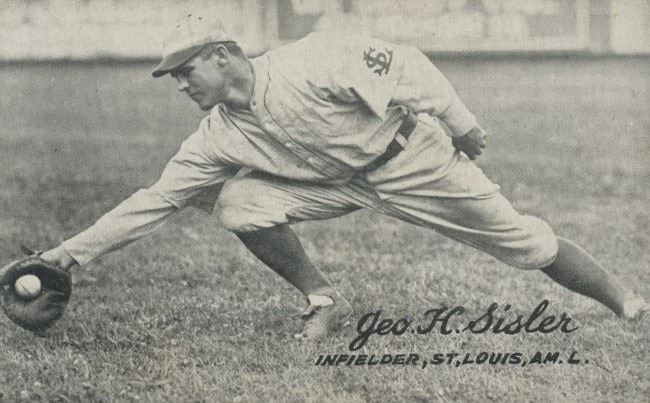
George Sisler, nicknamed “Gorgeous George” for his good looks and gentlemanly demeanor, played first base for the St. Louis Browns for thirteen seasons, from 1915 to 1927. He established himself as one of the most prolific hitters in baseball history, renowned for his consistent batting average, exceptional on-base skills, and well-rounded defensive abilities.
Sisler’s offensive prowess with the Browns is undeniable. He compiled a career batting average of .340, the second highest in franchise history. He led the American League in batting average twice, in 1920 and 1922, and in on-base percentage four times. Additionally, Sisler recorded a remarkable seven seasons with a batting average over .350, showcasing his remarkable consistency at the plate. Notably, he set a major league record with 257 hits in 1920, a record that stood for over 80 years.
Sisler possessed a smooth swing and exceptional hand-eye coordination, allowing him to hit for both average and power. He also displayed impressive baserunning skills, leading the league in stolen bases four times with the Browns. While primarily known for his hitting, Sisler was also a reliable defender at first base.
One notable event that exemplifies Sisler’s dedication and sportsmanship occurred in 1922. During a game against the Washington Senators, a baserunner collided with Sisler at first base, fracturing his ankle. Despite the pain, Sisler remained in the game and finished the inning. His sportsmanship and hustle earned him the respect of his peers and solidified his reputation as a model player. He also briefly served as manager for the Browns from 1924 to 1926, though the team struggled during his tenure.
George Sisler was elected to the National Baseball Hall of Fame in 1939, his second year of eligibility.
Best Orioles baseball card: 1921 Exhibits W461-1 George Sisler
Just like his teammate, Urban Shocker, not a lot of George Sisler cards exist, owing to his career falling between two major baseball card eras. Regardless, his 1921 Exhibits card, shown in horizontal format, is beautiful. It shows a staged photo of Sisler fielding a grounder, with his scripted name and team below. The cards cost approximately $200-$400 for a mid-grade version.
4. Eddie Murray
Player History
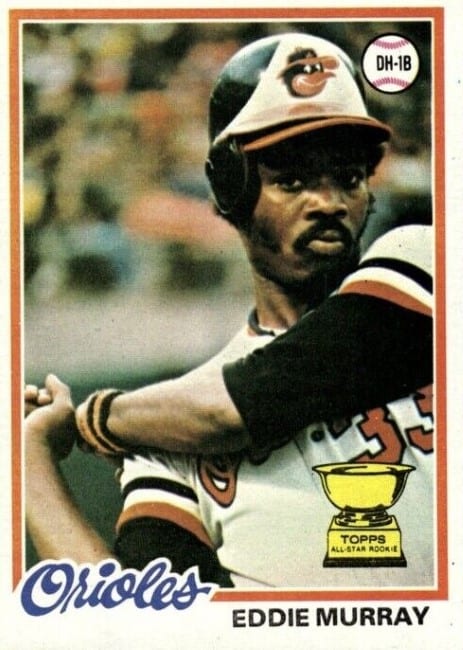
Eddie Murray, nicknamed “Steady Eddie” for his calm demeanor and consistent performance, patrolled first base and served as a designated hitter for the Baltimore Orioles for twelve seasons, from 1977 to 1988. He established himself as one of the most prolific hitters in franchise history, renowned for his power hitting, impressive on-base skills, and longevity.
Murray’s offensive prowess with the Orioles is undeniable. He ranks fourth in team history in both games played and hits, a testament to his consistent presence in the lineup. He also ranks second in home runs with 282, showcasing his power-hitting ability. Additionally, Murray was a seven-time All-Star selection with the Orioles, receiving recognition for his elite talent among American League first basemen. Notably, he played a key role in leading the Orioles to the World Series in 1983, which they won in five games.
Beyond the statistics, Murray was a versatile hitter who excelled in various aspects of the game. He possessed a smooth swing and exceptional power, allowing him to consistently drive the ball deep into the outfield. He also displayed good discipline at the plate, drawing walks at a high rate and reaching base over .350 in several seasons.
Eddie Murray’s relationship with the media was often described as strained. He was known for being a private individual who guarded his personal life and was sometimes critical of media coverage. Observers speculate that Murray’s strained relationship with the media might have negatively impacted his initial Hall of Fame voting, though he was eventually inducted in 2003.
Eddie Murray was elected to the National Baseball Hall of Fame in 2003, his eighth year of eligibility.
Best Orioles baseball card: 1978 Topps Eddie Murray #36 (RC)
Eddie Murray’s rookie card shows a wonderful portrait of him, looking into the camera during the follow through of his legendary swing. This is one of the most highly sought-after cards of the 70s, in part because of its great composition. PSA 9 and PSA 10 versions of the card can sell for thousands, but near-mint cards are closer to the $100-$200 range.
3. Jim Palmer
Player History
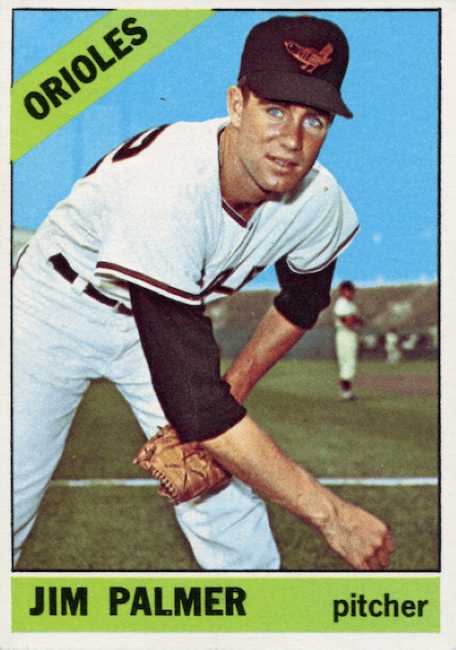
Jim Palmer dominated the mound for the Baltimore Orioles for nineteen seasons, from 1965 to 1984. He established himself as one of the most accomplished pitchers in baseball history, renowned for his exceptional control, deceptive repertoire, and unwavering competitiveness.
Palmer amassed 268 wins, the most in franchise history, and compiled a stellar 2.85 ERA throughout his career. He led the American League in earned run average three times and strikeouts four times, showcasing his consistent excellence on the mound. Additionally, Palmer was a six-time All-Star selection and three-time Cy Young Award winner, solidifying his status as one of the league’s premier pitchers for over a decade. Notably, he played a pivotal role in leading the Orioles to World Series victories in 1966, 1970 and 1983 – the only pitcher to win a World Series game in three different decades.
Beyond the statistics, Palmer was cerebral. He meticulously studied hitters and relied on a diverse arsenal of pitches, including a fastball, curveball, and slider, to induce weak contact. “(Jim) Palmer is the greatest ‘situation’ pitcher I’ve ever seen. He makes them beat him on a single and one run at a time. Most of the homers he gives up are solos because he only works to their power when the bases are empty,” commented former Orioles manager Ray Miller.
Palmer’s impact extended beyond the field. He served as a mentor to younger pitchers within the organization, offering guidance and sharing his extensive knowledge of the game. He also actively participated in charitable events, demonstrating his commitment to giving back to the Baltimore community. Palmer became a broadcaster after his playing career ended, for both national and Baltimore media.
Jim Palmer was elected to the National Baseball Hall of Fame in 1990, his first year of eligibility.
Best Orioles baseball card: 1966 Topps Jim Palmer #126 (RC)
Jim Palmer pitched mostly in relief in his rookie season, but everyone saw the promise of things to come. It was also the first of three World Series that Palmer would win. This is without a doubt Palmer’s most sought-after card, and the price bears that out: around $300-$400 for a near-mint version. Due to centering issues, higher grades are more difficult to find and can cost several thousands. PSA has yet to catalog a gem-mint 10 card.
2. Brooks Robinson
Player History
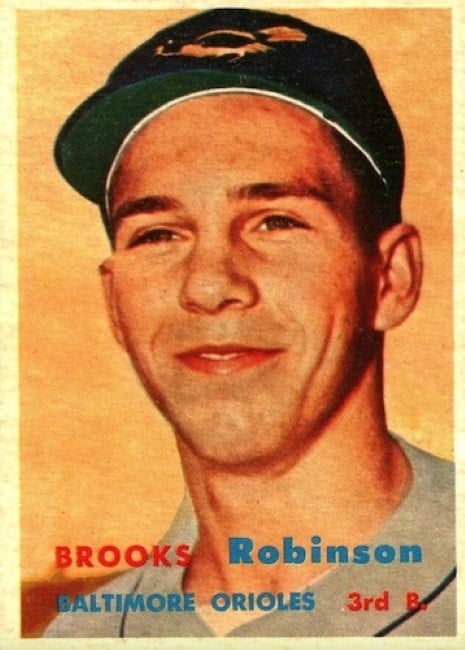
Brooks Calbert Robinson, Jr., nicknamed “Mr. Oriole” for his loyalty and dedication to the team, patrolled third base for the Baltimore Orioles for his entire 23-year career, spanning from 1955 to 1977. He established himself as arguably the greatest defensive third baseman in baseball history, renowned for his exceptional range, soft hands, and sure throws.
Robinson’s defensive prowess with the Orioles is unparalleled. He led the American League in fielding percentage a remarkable eleven times and holds the major league record for most assists by a third baseman (2,770). Additionally, he won a staggering sixteen consecutive Gold Glove Awards, the most by any position player in MLB history. These accolades solidify his status as a defensive legend, consistently demonstrating his mastery at the hot corner.
Robinson was smooth and effortless on the field. He possessed an exceptional ability to anticipate plays, covering vast amounts of ground with remarkable agility. His soft hands allowed him to snag difficult grounders, and his strong throwing arm ensured accurate and timely throws to first base. One notable story exemplifies his defensive brilliance. In the 1970 World Series against the Cincinnati Reds, Robinson made a game-saving play in the ninth inning, diving to his left to snag a line drive and secure the victory for the Orioles. This earned him the nickname “The Human Vacuum Cleaner.”
Robinson’s impact extended beyond the field. He participated in charitable events and community outreach programs, and his humble personality and genuine interactions with fans earned him widespread respect and admiration throughout his career.
Said writer John Steadman, a former writer for The Baltimore Sun: “There’s not a man who knows him who wouldn’t swear for his integrity and honesty and give testimony to his consideration of others. He’s an extraordinary human being, which is important, and the world’s greatest third baseman of all time, which is incidental.”
Brooks Robinson was elected to the National Baseball Hall of Fame in 1983, his first year of eligibility.
Best Orioles baseball card: 1957 Topps Brooks Robinson #328 (RC)
Sure, rookie cards are valuable, but what makes this the ideal Brooks Robinson card is how perfectly it captures his personality. Young and smiling on an orange-tinted background, Robinson’s rookie is a collector’s favorite. Anything above very good condition will likely cost at least $1,000 to acquire, with the only PSA 10 in existence selling for over $47,000.
1. Cal Ripken, Jr.
Player History
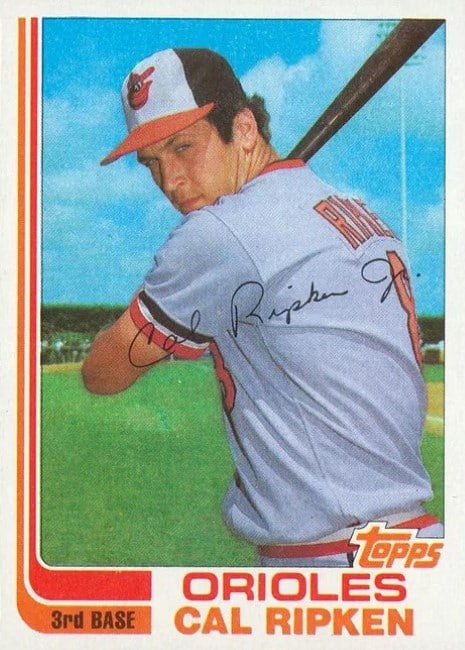
Calvin Edwin Ripken, Jr., nicknamed “The Iron Man” for his unparalleled durability, patrolled shortstop and third base for the Baltimore Orioles for his entire 21-season career, from 1981 to 2001. He established himself as one of the most accomplished and iconic players in baseball history, renowned for his consistent hitting, defensive prowess, and unwavering dedication to the game.
Ripken’s offensive achievements with the Orioles are remarkable. He compiled a career batting average of .273 with 3,184 hits, 431 home runs, and 1,695 RBIs, solidifying his status as a well-rounded offensive threat. He was a two-time AL MVP and a nineteen-time All-Star selection, consistently demonstrating his elite talent among his peers.
Cal Ripken Jr.’s pursuit of the consecutive games played record, previously held by Lou Gehrig, is one of baseball’s most iconic stories. Driven by a combination of exceptional durability and dedication to the game, Ripken embarked on a remarkable streak that began on May 30, 1982, and culminated in 2,130 consecutive games played on September 6, 1995. Ultimately, he played in 2,632 games before removing himself from the starting lineup in 1998. This feat of endurance not only cemented his nickname “The Iron Man” but also captured the imagination of fans and solidified his place in baseball history.
Ripken, who was borned and raised in Maryland, continued to be active in baseball after retirement. He owns the Aberdeen IronBirds minor league team, and is also a minority owner of the Baltimore Orioles. He is also the president and CEO of Ripken Baseball, a grassroots baseball organization, and the co-namesake of the Cal Ripken / Lou Gehrig Fund for Neuromuscular Research at Johns Hopkins University in Baltimore.
Cal Ripken Jr. was elected to the National Baseball Hall of Fame in 2007, his first year of eligibility, receiving 98.53% of the vote – sixth most all-time.
Best Orioles baseball card: 1982 Topps Traded Cal Ripken, Jr. #98T (RC)
Ripken was a rookie in 1982, so collectors have several options when searching out his rookie card. Since the 1982 Topps Cal Ripken, Jr. #21 is shared with two other players, the most desirable rookie is the 1982 Topps Traded instead. (This card was also immortalized in a Topps Project 2020 series.) The card costs $150-$300 in excellent-near mint condition, and several thousand dollars for a gem-mint PSA 10.



